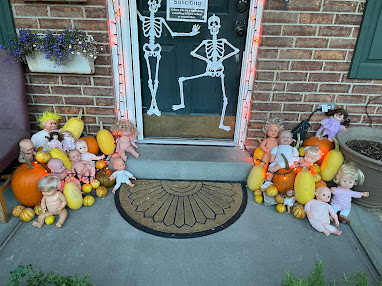Mental Health Post #16: Suicide
This next post has really been weighing on me because it's a hard topic. I've been putting off writing it (see my last post about procrastination and anxiety!) because I am scared I won't do a good job of addressing it. I am, of course, talking about suicide and suicidal ideation. I have been suicidal in my life, though not for many years. The first time I contemplated killing myself was when I had expatriate depression (see previous post about this). I was so low and in so much pain for so long that I wanted only to escape that pain. And since I could not escape my situation, I started thinking of ending my life. The very thought of doing so shocked and terrified me so much that I immediately told my dad and thankfully, that's when the ball got rolling and I was able to return home.
The second time that I considered suicide was a couple years after we moved to our current location. I had been trending downwards mood-wise for a couple of years, but didn't want the hassle of addressing a medication change (which in the back of my mind I knew was necessary). I also didn't feel like I had a deep relationship with my psychiatrist and was worried about how to even address the issue with him. The trend continued until on New Year's Eve, I threw a packet of glitter at Derek in front of a bunch of family members when he didn't listen to me about something, a move so childish and embarrassing that it shames me to even bring it up now. I was excruciatingly humiliated and ran upstairs and locked myself in the bathroom for several hours where I wept and ignored pleas from my family to come out. It was not good and I wondered how I could ever leave the room again, or even show my face to my husband and children, much less the other family members. So my mind started to go down that dark path again. Unlike the first time, I started thinking about plans and wondered if it really was the only option for me. Thank God for Derek who must have known how bad it was and talked to me through the door and convinced me that he was worried about me and couldn't live without me. My children all came by too and pushed homemade cards and beloved treasures for me under the door. I made an appointment immediately with my psychiatrist and after a few months of medication adjustments, I was on the road to stability that I have thankfully been on for many years now.
What I realized that second time was that even if I didn't value my life, and felt like I couldn't go on with the pain in my soul, there were people who did and who would be devastated if I did something drastic like take my own life. I mentioned in my last post the LIE of depression/anxiety: that things have always been bad, and always will be bad. Do not believe this LIE. It is wrong and it is not reality. Reality is that you have been happy before and you will be happy again. You feel true and valid horrible pain right now, but it will not last forever. I think many people that contemplate suicide do so because of the intense emotional pain they are experiencing and the need to escape it because they feel trapped. That was the case for me for sure.
The second experience was a real wake-up call for me to stay on top of my mental health, to be consistently self-evaluating my trends while taking into account my normal cycles like seasons and menstruation. I realized that caring for mental health can take the same kind of hard work as any other chronic disease, but that it is possible to remit and to have times of beauty and contentment in life.
Please, if you are having thoughts of killing yourself, reach out to someone. If you don't feel like you can talk to anyone around you, please call the National Suicide Prevention Hotline:
800-273-8255
Please please believe me as someone who has been so low that I would rather die than continue to bear the burden of extreme pain, please know that you are loved, your life is worth continuing and there is help. You are needed.
For those who know someone who is struggling with severe depression and anxiety, please take any talk about suicide with absolute seriousness. Do not disregard talk about death or wanting to get away from such extreme pain. Many times, people talk about suicide as a way to bring attention to the soul-sucking pain they are experiencing because they are at the end of their rope. You can also call the National Suicide Prevention Hotline for help as a concerned friend.
Photo note: such a heavy topic, so we'll lighten it up a little with a picture of my zombie dog. He's all ready for Halloween... ;)




